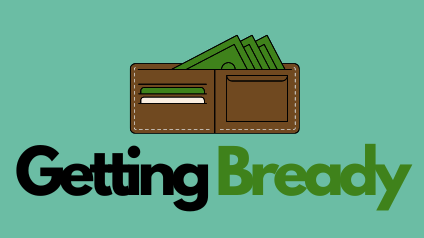
What is investing?
Investing can take many forms but simply put, investing is expending some form of resource with the aim of receiving some sort of return. It can be an expenditure of your time, energy, or money in the hopes of getting back more than you put in. Typically, when people think of investing, they are thinking about spending some money and getting their money back plus some extra.
“I don’t have enough money to invest.”
Many people hold the opinion that investing is something reserved for the wealthy. It is true that if you have a small sum of money to invest, you probably won’t earn a large enough return to retire overnight. The problem with this thinking is that it tends to ignore the fact that huge fortunes aren’t built over night. If you wait to invest with the thought that you will just put more money in later, you will miss out on the compounding effect that occurs over long periods of time. Compounding is the magic that creates vast sums of money from small initial investments. If you invest $1000 and earn a 10% return on that investment than you will have earned $100. If you invest the $1100 and earn a 10% return than you will earn $110. Over a period of many months and years the effect of compounding becomes much more dramatic with the value of your investment potentially growing much larger than the money you put in. This compounding effect is known as compound interest, and it can be thought of as “earning interest on interest.”
Common Investments
Stocks

For a detailed explanation of stocks check out this article. Stocks can range in price from a few pennies to over $500,000 per share. You can find stocks for companies in a wide range of industries such as oil and gas, real estate, healthcare, energy, financial, industrials, etc. Given this huge range of diversity, you are bound to find a company that suits your investment goals. When you invest in stocks you may lose some or all of your investment and so it is important to do you research and consult a professional if you have questions.
Bonds

Simply put, bonds are debt instruments that entities use to borrow money. Think a company wanting to raise funds for expansion or a government agency wanting to borrow money for some project. The entity makes periodic interest payments to the bondholders (you) until the maturity date. Bonds can be issued by individual companies or by various government agencies. As such, the risk of the issuer defaulting on their payment obligations varies widely and so you’ll need to do some research. For those who don’t mind the risk, bonds can be a relatively straightforward way to collect interest on your investment.
Real Estate

Investing in real estate can take a million different forms. Some of the most common ways that people invest in real estate include the following:
- Short Term Rentals
- Long Term Rentals
- Fix and Flip
Short Term Rentals
If you’ve spent any considerable amount of time on TikTok you’ve most likely heard about short term rentals. Short term rentals are when someone acquires a property and lists it on a site such as Airbnb or Vrbo for short term stays. People do this as it can prove very lucrative if done correctly. The properties are often fully furnished, and the shorter-term stays creates high effective annual rental rate which can produce a much higher return on investment than a long-term rental. Generally speaking, a good short-term rental should be located in an area where there is a lot of demand for that type of property. Think cabin in the woods in an area where people tend to go glamping. Similarly, a short-term rental could be a condo off of the beach with a beautiful view of the ocean or it could be a little apartment on Bourbon Street. The possibilities are endless and so it is important to do your research and ensure that there is demand for the type of property you are considering and that the numbers work.
Long Term Rentals
Unlike short term rentals, which often take up a significant amount of time each month, long term rentals can prove to be much more passive. This type of rental is the one that most people are familiar with. If you’ve ever rented an apartment, condo, duplex, or single-family house you know what long term rentals are. The basic format is that a tenant rents a property from a landlord for some period of time in exchange for an agreed upon rent. A year-long lease is most common for residential real estate, though the duration of the lease can vary depending on what the landlord and tenant agree upon. The return on investment for long term rentals is typically lower than for short term rentals, however, it can still be very lucrative. As with other investments, it is important to do your research and to consult with professionals who can help you to get started. One thing worth stating is that it is very important to select your tenant carefully. Many landlords do credit and background checks in order to help them avoid problem tenants. You do not want to be stuck with a nightmare tenant for weeks (or months).
Fix and flip
If you’ve watched HGTV you’ve undoubtedly seen the hundreds of shows about this topic. The basic format is for someone to acquire a distressed property at a steep discount, renovate it, and then turn around and sell it to recoup their initial investment. This type of investment receives a lot of attention; however, it is important to note that things can go wrong. The property can have deeper, most costly problems that may go unnoticed until during the renovation. Countless would-be flippers have the unhappy surprise of discovering things such as foundation damage, termites, asbestos, and mold during a flip. As such it is very important to do a deep dive into the property before purchasing. Ensuring that you get a significant discount on your purchase provides you with a wider room for error (or potential profit).




Leave a comment